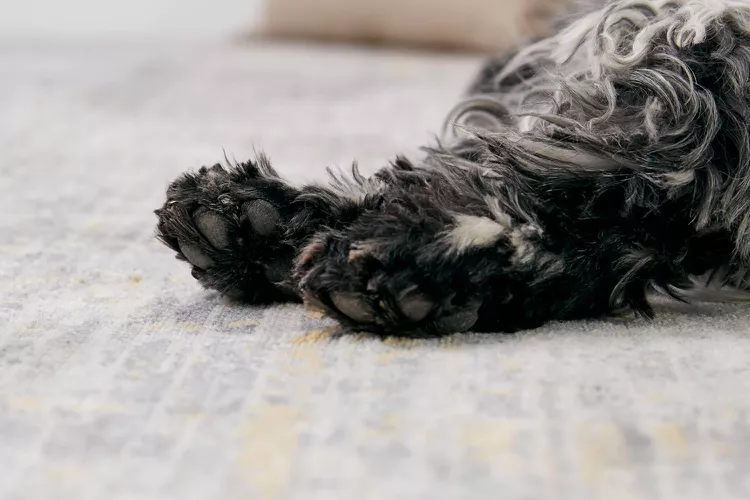Why Does My Dog Smell Like Fritos? How to Treat the Unusual Odor

Why do my dog's feet smell like Fritos? It's no surprise that dogs are likely to walk or dig into some smelly things resulting in smelly feet. But some dogs also may have visibly clean feet that chronically smell like corn chips. This unique scent may be an indication of an infection, so it's wise for pet parents to know what to look for, or smell for, with their dog's feet.
Here's more information about why your dog's feet smell like corn chips and how to treat the smell.
Why Do Dog Feet Smell?
When feet smell, it is because bacteria or yeast is growing in or on them or the dog stepped into something stinky. Injuries or allergies can cause these microorganisms to develop and if they aren't treated, infections can occur. Some dogs, however, can develop an overgrowth of bacteria or develop a combination of yeast and bacteria. If this occurs on your dog's feet, it is a problem called pododermatitis.
Microorganisms
As bacteria or yeast invade a part of the body, they cause tissue to die off. This releases chemicals that cause the odor we smell, but the microorganisms also produce some chemicals themselves that create odors. This means that the odor that people smell from a wound or dirty surface is actually due to chemicals that are a direct result of the infectious organisms. Some types of bacteria and yeast have very distinct smells, and certain types of bacteria and yeast will actually cause a corn chip smell to come from the feet of dogs.
Moisture
Most people know that dogs cool down by panting, but they also sweat through their feet to release heat. Sweat is released from glands and causes moisture between the paw pads and toes. When moisture combines with heat without being allowed to dry out regularly, bacteria or yeast can invade. This is very common in dogs since they have fur that likes to stay moist and, in addition to sweating, it may also occur in a dog that regularly licks their feet or spends time in the water.
Treatment for Smelly Dog Feet
Common treatments for smelly dog feet include:
- Medicated wipes
- Sprays
- Shampoos
- Prescription diet, if food allergies or sensitivities caused the pododermatitis
How to Prevent Smelly Dog Feet
You can prevent foot infections by keeping your dog's paws clean and dry and checking them regularly for signs of injury or irritation. If allergies are the cause, then the allergies will need to be treated to help reduce the chance of infection. Your veterinarian can help you come up with a plan for this. Contact your vet at the first sign of paw issues so treatment can begin before the problem is serious. It's also important to keep up with recommended wellness check-ups as your vet may detect early signs or paw issues before they bother your dog.
When to See a Vet
An abundance of bacteria and yeast in a dog's feet will cause inflammation and irritation. Dogs will often lick or chew on their feet because of this irritation, so if your dog is doing this and its feet smell like corn chips, it's a good sign that an abnormal amount of yeast or bacteria are present. If this is the case, you should bring your dog in to see a veterinarian for assessment of the feet and treatment of the infection.
Occasionally, when people think their dog smells like corn chips, it isn't actually the feet but the rest of their dog's body, face, or ears instead. Bacterial and yeast infections can occur anywhere a dog has skin, especially if there are wrinkles and places for microorganisms to hide. If that corn chip smell never seems to go away or just keeps getting stronger, make sure you get your dog checked out for a bigger issue.
-
Why does my dog smell like popcorn?
If your dog smells like popcorn and hasn't recently eaten any of the salty snack, you may be smelling an overgrowth of yeast.
-
How do I get yeast smell off a dog?
Medicated shampoos can get yeast smell under control by treating the underlying yeast infection. Check with your veterinarian for further details on how to treat a yeast infection.
-
Can you smell diabetes in dogs?
Humans can't smell diabetes in dogs, but there's research suggesting that dogs can detect diabetes in humans.